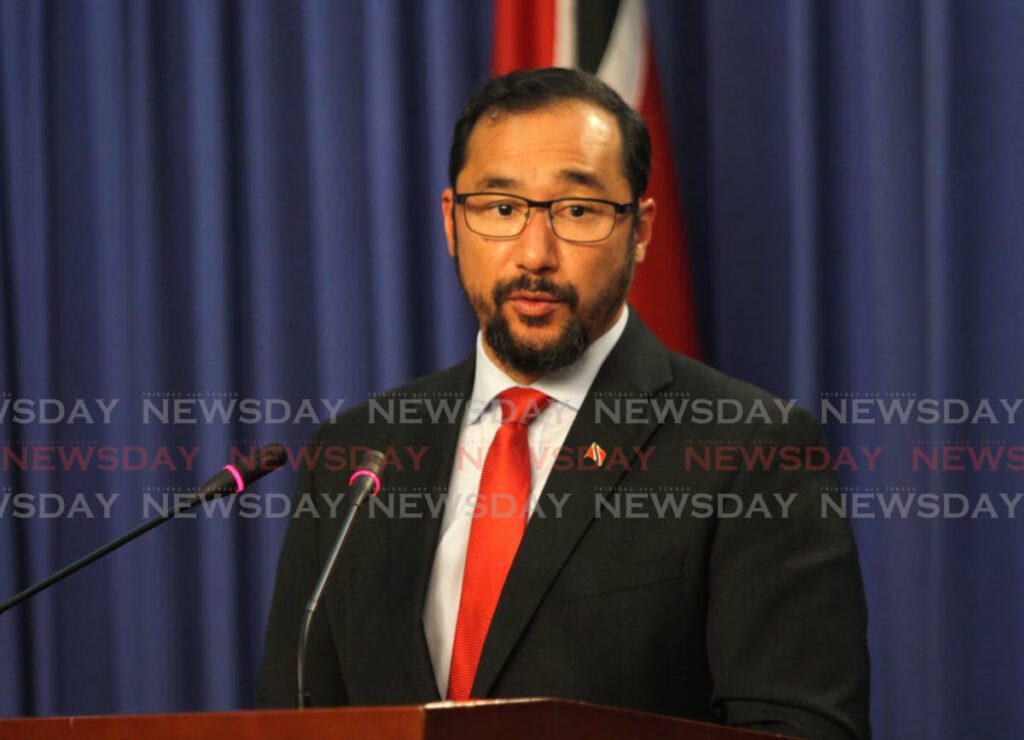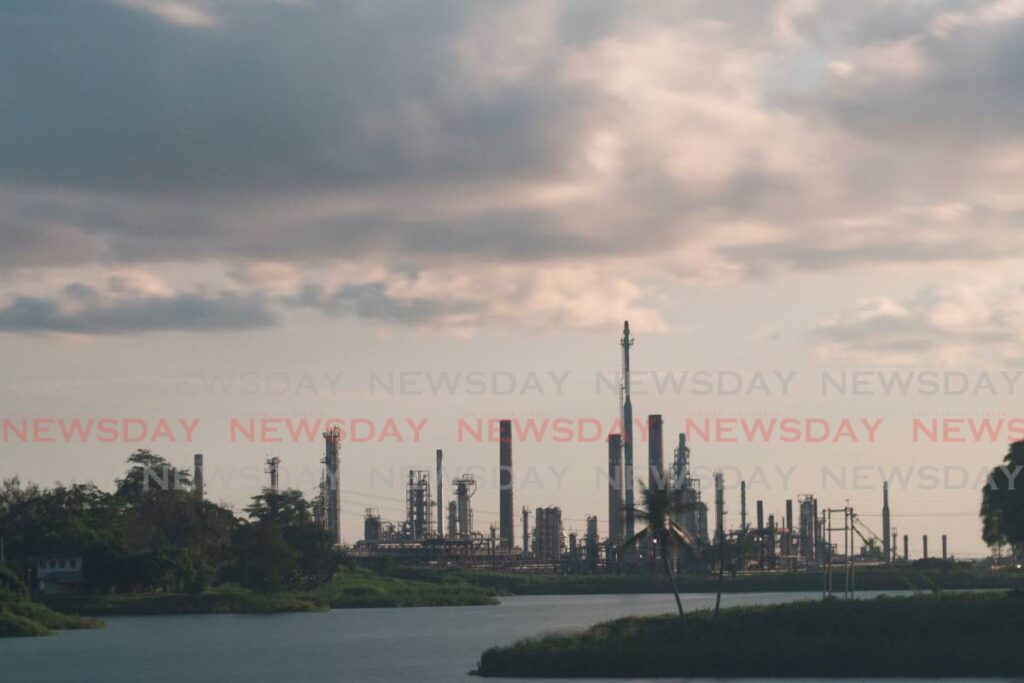The truth about Petrotrin and its restructuring

STUART R YOUNG
Minister of Energy and Energy Industries and Minister in the Office of the Prime Minister
Part I
Allow me to start by openly declaring that I welcome healthy debate and have never shied away from a good and robust debate, whether it be in the courtrooms as an advocate attorney, on the floor of the Parliament (as a temporary opposition senator or as an elected member of Parliament), or simply whilst walking throughout the country and engaging persons who have strong opinions on various matters.
In my opinion, there are always two non-negotiable requisites for a healthy debate: firstly, mutual respect, and secondly, reliance on evidence which is based on the facts.
It has unfortunately become increasingly apparent that a complete disregard for facts and truth by certain public-interest commentators comes naturally to the said individuals in furtherance of agendas.
Publication of inaccurate and misleading information can be harmful to the public interest. When we rely on the media for information to guide our decision-making, it is absolutely essential that the media assume the role of fact-checking and ensuring accuracy, otherwise these platforms can be used unwittingly for nefarious purposes.
The latest offending publication is authored by commentator Ralph Maraj in the Sunday Express of April 28, under the headline Shed your Intellectual Laziness.
Ralph Maraj once again invents “facts” in his submission that the Government, and in particular, the Prime Minister, Dr Rowley, was wrong in its/his decision to restructure Petrotrin and to close the loss-making refinery.
As Minister of Energy and Energy Industries, the responsibility is mine once again to put the irrefutable facts forward and to correct the record.
Not for the first time, Mr Maraj mentions chairmen, board members and reports which allegedly advised the government against closing the refinery, and he does this without being able to point to a single item of fact in support of these assertions. He cannot identify a single chairman, or board, or report, in support of his frequent assertions.
It is an irrefutable fact that Petrotrin was restructured. Petrotrin still exists as a legal entity. Its main business is holding various legacy assets; however, its original operations were restructured. Trinidad Petroleum Holdings Ltd (TPHL) was incorporated as a holding company with Petrotrin itself as one of its subsidiaries.
The exploration and production operations were restructured into the successful company Heritage Petroleum Company Ltd.
The provision of refined fuel products was taken on by Paria Fuel Trading Company Ltd (Paria), which has successfully imported refined products (eg gasoline, diesel, aviation fuel, etc) for the domestic market and for sale throughout the region.
The refinery was placed into Guaracara Refining Company Ltd, a subsidiary formed to preserve the refinery and to provide utility services to Paria.
This restructuring was actually conducted in 2018 by the then chairman of Petrotrin, Mr Wilfred Espinet, and his board, in conjunction with the decision-making of the Cabinet. The board was fully involved at every step of the way in the restructuring of Petrotrin and advising the Cabinet. The decision to shut down the refinery was a Cabinet decision.
It is also an irrefutable fact that the shutting-down of the refinery and the restructuring of Petrotrin’s operations averted a major economic crisis for the Treasury and the country at large.
Upon coming into office in 2015, the government was confronted with a major unsustainable financial model and operations at Petrotrin.
In 2014, Petrotrin registered a loss of $361.3 million, and in 2015 its loss was $1.2 billion.
The country had seen a decline in its total domestic oil production from approximately 144,000 barrels of oil per day (bopd) in 2005, to 98,000 bopd in 2010, to 78,600 bopd in 2015.
Of this, Petrotrin’s own production of oil declined from approximately 64,000 bopd in 2006 to 42,000 bopd in 2016. It now stands at approximately 35,000 bopd.
Our mature fields were clearly on a decline, and this crude oil was the input into the Petrotrin refinery, which was constructed to refine 175,000 bopd.
This meant that Petrotrin was required to import approximately 120,000 bopd to maximise output at the refinery. This component of imported crude oil was sourced on the international open market at prices set by the global oil markets.
It should be appreciated that the purchase of all imported crude was required to be done in US dollars. The declining oil production in Trinidad and Tobago had led to the increasing costs of importing crude for refining at Petrotrin. All analyses show that more often than not, this resulted in losses of US $5-$7 a barrel of refined product.

Added to the unfavourable marketing arrangements for crude, the inefficient costs of lifting barrels of oil at Petrotrin had made the company very uncompetitive.
In 2016, Petrotrin registered a loss of $4.3 billion, which meant that it had incurred cumulative losses of approximately $5.9 billion in a three-year period.
By the end of 2016, the Government had done a preliminary assessment of Petrotrin. It was concerned about its trajectory and in particular the effects that it was threatening to have on the Treasury and the country’s sovereign rating.
A decline of our sovereign rating would affect the Government’s ability to borrow and the interest rates that its borrowings would be subjected to. So critical were the declining state of Petrotrin and the ongoing demands being made by the OWTU (Oilfields Workers' Trade Union) for increases that the Prime Minister addressed the nation in early January 2017 on the threat that Petrotrin posed to the country and its well-being.
In February 2017, the Cabinet appointed a team to conduct a review of the operations of Petrotrin and to make recommendations for its restructuring. The team comprised Mr Selwyn Lashley as chairman, Ms Helen Drayton, Prof Chandrabhan Sharma (who subsequently recused himself due to a potential conflict), Mr Robert Riley, Mr Wilfred Espinet, Mr Gregory Marchan (representative of the OWTU) and Mr David Abdulah (representative of the OWTU). The Lashley committee, as it came to be known, submitted its report, dated June 1, 2017, to the Cabinet, and this report was subsequently laid in Parliament.
This report concluded that all was far from well at Petrotrin and highlighted its financial difficulties, the inefficiencies that it was facing in its refinery operations, which were losing hundreds of millions of dollars, the concerns of asset integrity and the looming bullet payment of US $850 million, which had to be paid in August 2019.
There were further difficulties associated with servicing another US $750 million debt, the increasing burden of short-term debt (the majority of which was being used to purchase crude oil for input into the refinery) and its declining oil production.
Interestingly enough, none of these pertinent and well-known facts ever form any part of the analyses, fulminations and castigations of the Government frequently presented by Mr Maraj. He always talks about the refinery as though it operated in a vacuum of love and affection.
The terms of reference and work done by this Lashley team were limited in nature and were always meant to provide an initial independent high-level analysis of the state of Petrotrin.
Its conclusion was very worrying, and required immediate action, which included a deeper dive into Petrotrin’s operations to ascertain more details and to come up with options to avoid Petrotrin’s poor state having a contagion effect on the country’s economy.
Based on this situation, the Government, and in particular, the standing energy sub-Cabinet committee recognised that an urgent intervention into Petrotrin was necessary.
Part II of this account will be published tomorrow.


Comments
"The truth about Petrotrin and its restructuring"